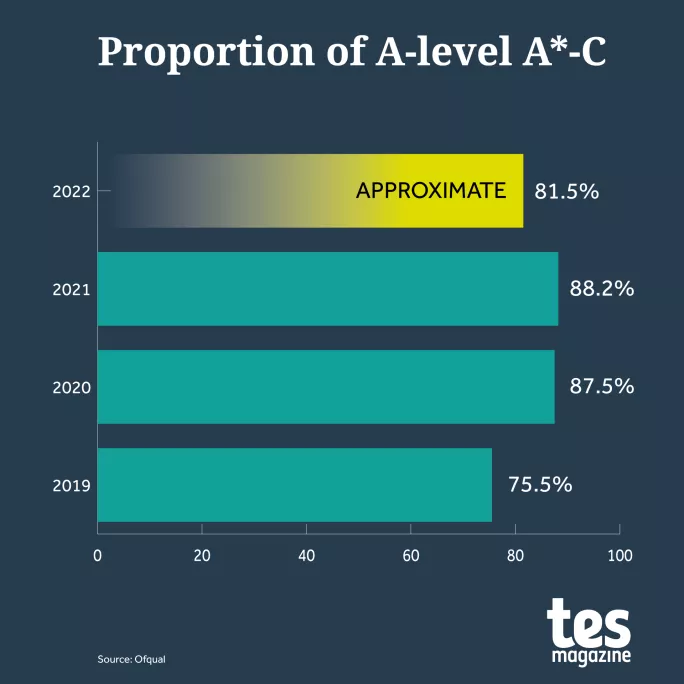It’s been interesting to see the revving up for A-level results this week. And perhaps it’s unsurprising, given how high the stakes are this year: the first public exams for three years - and the government’s first intervention in grading since the crisis of 2020.
From my experience as many years as a head, I know how anxious some students and their parents will be ahead of Thursday.
And I know the importance of your role, as a school leader or teacher, in keeping the lid on the pressure cooker.
A-level results day: the pressure cooker
Because the fact is, the system bakes in this pressure cooker. It surprises me that, with rising mental health problems among our young, we still pile on the stress with end-of-course exams.
Making two to three years of learning come down to the student’s performance on just one day ramps up the pressure. We could be taking the heat out of the situation by having at least some form of teacher assessment (which was shown to work well in 2021).
This year, you may be feeling more anxious, too, and the environment of grading this year is bound to cause plenty of people some additional worry.
What do we know? While grading will be lenient, steps are being taken to tackle some of the recent grade inflation, and boundaries are coming down to bring grades closer in line with what they would have been before the pandemic.
This intervention is likely to be greater at A level than GCSE, because we saw the most grade inflation in the former. Indeed, the percentage of students achieving A* to C at A level in 2021 was 88.2 (87.5 in 2020), compared with 75.5 in 2019.
Ofqual has said it will set boundaries at the midpoint between 2021 and 2019, suggesting the proportion of A* to C grades will fall to somewhere around 81 per cent.
Despite this, I believe schools and students should take heart. And I hope that’s a message you can get across as students come into the hall or library for their all-important results slips.
We know, as adults and teachers, that the key thing about A levels (and, indeed, what makes them such high-stakes exams) is their value to a student’s progression.
Reasons to be optimistic
As long as, broadly speaking, young people can positively move forward in their lives, the majority will be happy.
And this is why they, and you, can be reassured. Because I know, from my new vantage point at a university, that the number of available university places doesn’t really change between years.
Indeed, if anything, most universities want to grow. And universities have got to fill those places based on the grade profile of the students applying to them. So if last year’s grades were up a notch, universities could afford to set a high bar in their offers; and if this year’s grades are slightly lower across the cohort, then grade requirements will go down accordingly.
So the important thing to remind your students is that they are mostly competing against their peers for places - not huge swathes of students who had higher grades under the centre-assessed grades or teacher-assessed grades systems of 2020 and 2021.
And while there have been scare stories to the contrary, the increase in the number of university deferrals this year is tiny, at under 1 per cent - so the number of students who deferred from last year is unlikely to affect this year’s exam students’ chances.
Of course, just as the exam system is returning to something closer to normality, so, too, will the experiences of results day be more typical - meaning some students will be disappointed in their grades. And that’s just normal.
For those students, helping them to focus quickly and calmly on their plan B will give them the best chance to move forward in a positive way.
Because, ultimately, that’s what A levels are all about.
Geraint Jones is the executive director and associate pro-vice-chancellor of the National Institute of Teaching and Education, Coventry University





